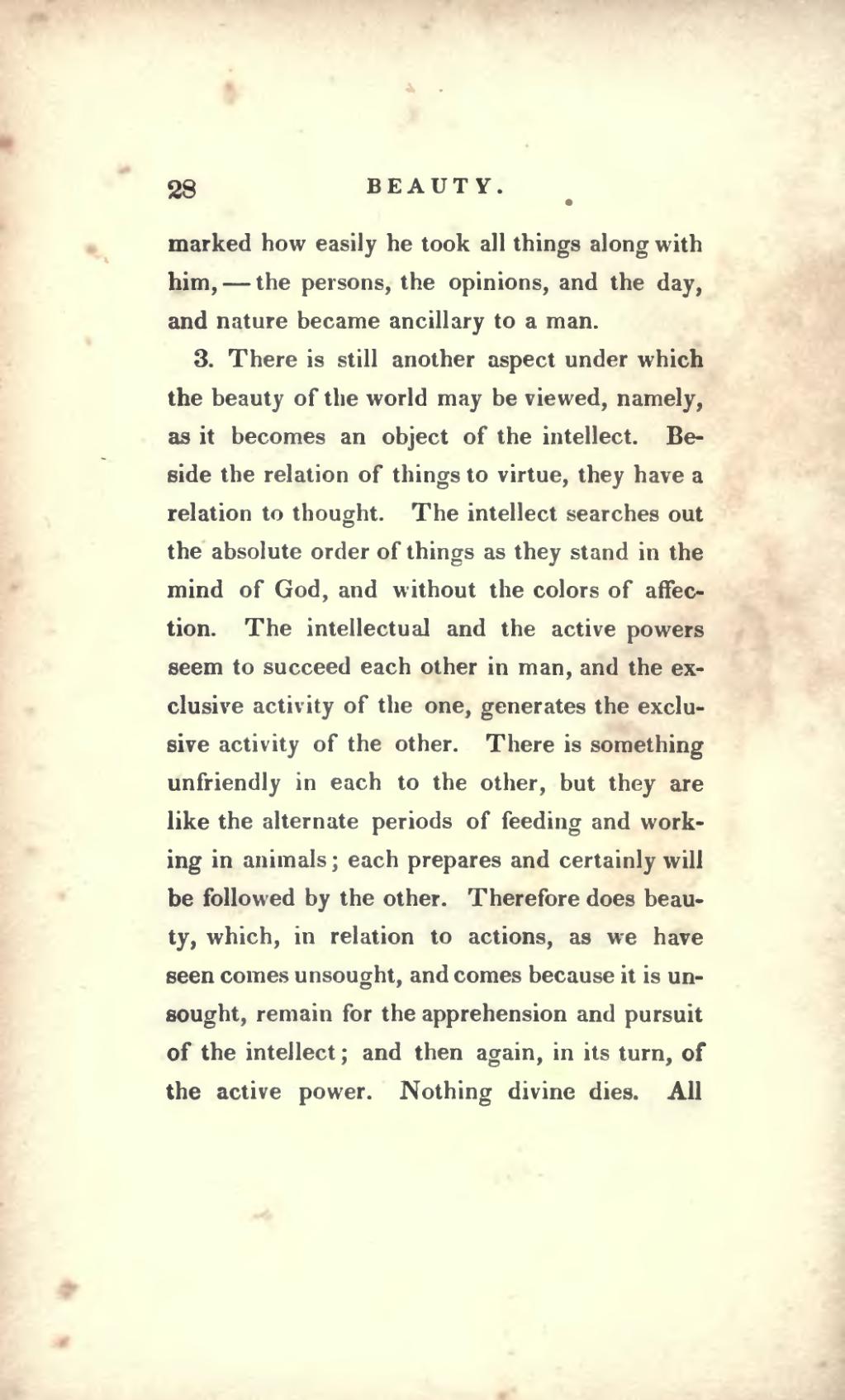marked how easily he took all things along with him,—the persons, the opinions, and the day, and nature became ancillary to a man.
3. There is still another aspect under which the beauty of the world may be viewed, namely, as it becomes an object of the intellect. Beside the relation of things to virtue, they have a relation to thought. The intellect searches out the absolute order of things as they stand in the mind of God, and without the colors of affection. The intellectual and the active powers seem to succeed each other in man, and the exclusive activity of the one, generates the exclusive activity of the other. There is something unfriendly in each to the other, but they are like the alternate periods of feeding and working in animals; each prepares and certainly will be followed by the other. Therefore does beauty, which, in relation to actions, as we have seen comes unsought, and comes because it is unsought, remain for the apprehension and pursuit of the intellect; and then again, in its turn, of the active power. Nothing divine dies. All
